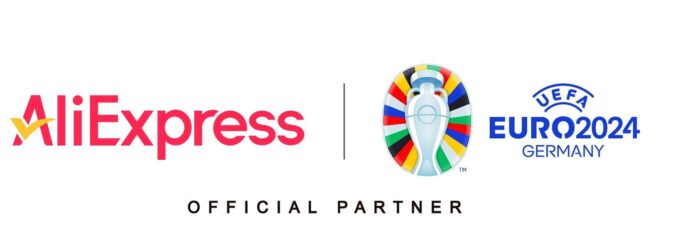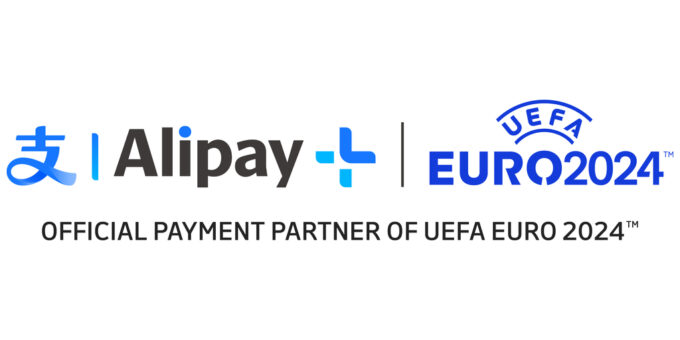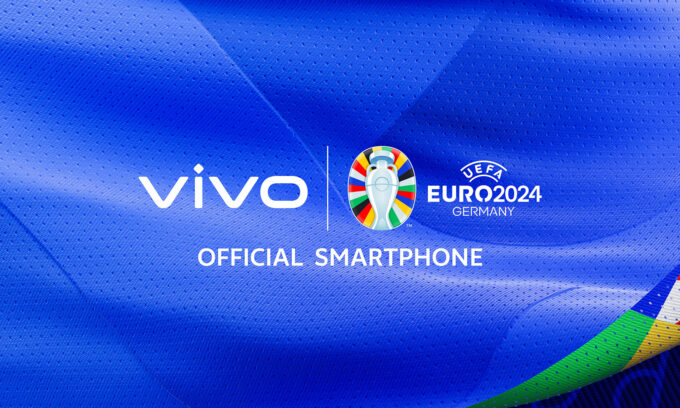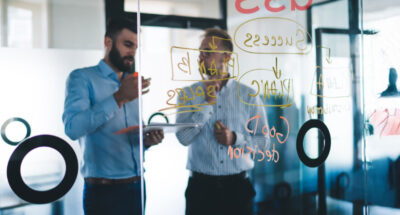
How to manage power dynamics in high-stakes negotiations
Former FBI agent Joe Navarro explains how to leverage non-verbal cues, manage power dynamics, and build trust to overcome deadlocks in negotiations....

by Mark J. Greeven, Howard H. Yu Published June 5, 2024 in Competitiveness • 10 min read
AliExpress, BYD, vivo, and Alipay+ join truly global brands: adidas, booking.com and Coca-Cola Zero as official global sponsors for the tournament, which kicks off on 14 June, with the final on 14 July in Berlin. But what specifically do these Chinese companies expect to gain from their involvement in EURO 2024, and how do they expect their multi-million euro investment to pay dividends?
“What’s new and interesting here is that Chinese companies, for the first time, will need to engage the Western market and learn to localize, moving their image from being Chinese companies with an international presence to becoming companies that consumers will associate with strong local relevance.”
In the past couple of decades, Chinese companies’ performance has been boosted by the significant and continuous growth of the national economy. They just needed to keep pace with domestic demand to maintain a world-beating growth rate. There was no driving need to transform their operations by becoming more efficient and, therefore, ready for today, while also being innovative for the future — or ready for tomorrow.
Now, however, Chinese companies need to perform and transform, and part of the solution to this challenge is to seek revenues outside their home market, where growth is softening. In addition — Alibaba’s two brands, AliExpress and Alipay+ — represent significant hopes for revenue growth for the Chinese giant, whose transformation efforts continue against a backdrop of a share price that has fallen from nearly HK$300 ($38.36) in October 2020 to HK$74.90 ($9.58) at the end of last month.
In this context, what unites the companies is their focus on their future international expansion, using their foundations and capital strength in China to boost overseas market presence and revenues, particularly in Europe. It’s their quest toward future readiness.
What’s new and interesting here is that Chinese companies, for the first time, will need to engage the Western market and learn to localize, moving their image from being Chinese companies with an international presence to becoming companies that consumers will associate with strong local relevance.
Association with Euro 24 — each as headline sponsors — also gives all companies exposure to an estimated global consumer audience of five billion people who will watch and interact with this summer’s tournament via TV, streaming, and social media.
“As football is also popular in many emerging markets, Chinese companies can also tap into those regions and reach new customers who will view and stream the football action.”
In basic marketing terms, aside from the ability to quickly and efficiently reach a massive global audience, Euro 24 is associated with excitement, sporting excellence, and international competition, so companies can connect their brands with these positive attributes, potentially boosting their overall image. It’s also a prime opportunity for Chinese companies to increase brand awareness and potentially boost sales among Europe’s 450 million citizens, many of whom benefit from a high disposable income. Expect all sponsors to offer Euro-branded apps and online experiences to engage consumers and invite them to input their personal data.
Having said that, a deep pocket alone is not sufficient. It requires commitment in the long run, so a company’s image would coalesce with the image of the event it sponsors. Rakuten, the Japanese e-commerce and internet services giant, has invested heavily in international sports sponsorships to build its brand globally. It signed a landmark jersey sponsorship deal with FC Barcelona in 2017, worth €220m over four years, to gain exposure to the club’s huge worldwide fan base. It then became the jersey patch sponsor of the NBA’s Golden State Warriors in 2017 and the league’s exclusive live game distribution partner in Japan, boosting Rakuten’s presence in the key U.S. and Asian markets.
Rakuten’s CEO has said sports sponsorships are an integral part of the company’s brand marketing mix. The high-profile deals with Barcelona, the Warriors, and the NBA have provided a media platform to build rapid brand recognition for Rakuten outside Japan as it expands its e-commerce ecosystem internationally. But it also owns a Japanese professional baseball team, Tohoku Rakuten Golden Eagles, and a soccer club, Vissel Kobe, which builds domestic sports credibility. All these suggest that sponsorship is not a once-off quick buck scheme. Instead, it’s a long-term commitment.
As football is also popular in many emerging markets, Chinese companies can also tap into those regions and reach new customers who will view and stream the football action. And finally, sponsoring a major sporting event like the Euros can help these companies establish themselves by projecting a global image as major international players, especially for those looking to expand their markets.
As China’s leading electric vehicle (EV) manufacturer, BYD’s sponsorship strategy appears to be multi-pronged. Sponsoring major events like Euro 24 allows them to position themselves as a frontrunner in the green energy movement, which supports the growing global focus on sustainability and environmental responsibility.
As BYD is the “Official E-Mobility Partner,” it says it will use Euro 2024 to showcase its cutting-edge EV technology to a global audience, including providing EVs for organizers’ use during the tournament and showcasing its latest models at event venues.
BYD will also use the event as a way to target the European market, building the brand with consumers, other influencers and regulators.
Chinese companies’ involvement in significant sponsorship deals with international sporting events is gradually increasing with their global marketing ambitions.
AliExpress and Alipay+ parent company Alibaba led the charge with its 2017–2028 top-tier sponsorship agreement with the International Olympic Committee becoming their official cloud services and e-commerce platform services partner, which involves providing cloud computing solutions to support the digital operations of the Olympic Games. vivo was FIFA’s official smartphone sponsor from 2017 to 2022, covering the World Cup tournaments in Russia and Qatar. Yet, brands must beware; sponsorship is not just a financial commitment; it can also create a backlash.
As a long-time Olympics sponsor, McDonald’s faced significant criticism for its sponsorship of the 2012 London Olympics. Despite McDonald’s efforts to promote healthier options on its menu, the sponsorship was seen by many as an endorsement of obesity and unhealthy eating habits. The company’s exclusive rights to sell fries at Olympic venues, which prevented other food retailers from serving fries with any meal except fish and chips, sparked further outrage over its monopoly.
The backlash underscored the potential risks for brands associated with major sporting events that can face increased scrutiny because of growing consumer influence and the uncontrollable nature of social media platforms.
What do we mean when referring to sponsorship as a strategic marketing play?
In October 2023, the European Commission launched a formal anti-subsidy investigation into imports of battery electric vehicles (BEVs) from China. This move stemmed from concerns that Chinese government subsidies gave Chinese EV manufacturers an unfair advantage in the European market. The investigation continues.
BYD, therefore, isn’t only keen to present its cars to potential consumers as attractive and desirable EVs through their high-profile support of Euro 24, they also want to remind host governments and regulators that the BYD brand is part of the solution to the European countries’ transition to a net zero carbon economy.
This is both a positive message and a process of risk management.
Generating consumer “pull” for their products and promoting their low-carbon technologies may also make it more difficult for governments to impose tariffs on Chinese EV imports when EU (European Union) EV producers allege unfair competition and Chinese state support at the same time as EU competition authorities push for good-value products for consumers.
Watch this space…
Overall, BYD’s sponsorship strategy appears to be a well-rounded approach that leverages major sporting events to promote its brand, target specific markets and audiences, showcase innovation, and associate itself with the tournament’s positive attributes.

The B2C e-commerce platform connects international consumers with sellers of Chinese manufactured products. Launched in 2010 as part of the Alibaba ecosystem — and with a presence in over 200 countries — it is a major player in the global e-commerce scene.
During the Qatar FIFA World Cup, it distributed event and team merchandise worldwide and hopes to build on this as an e-commerce partner for Euro 24.
Sponsoring the Euros provides exposure to European consumers and the ability to target a wide range of potential customers, including younger demographics who are more likely to shop online. The company can significantly increase brand awareness in Europe, which can help it establish itself as a legitimate player in the European e-commerce market, providing opportunities for global consumers to make their first purchases from the platform.
Expect to see prominent AliExpress branding, and logos displayed throughout the Euros, including in stadiums, broadcasts, and official merchandise. It is likely to augment this with targeted online promotions and discounts coinciding with the Euros, potentially offering special deals on sports apparel or products related to participating teams. Euros-themed social media campaigns and contests are also likely to generate excitement and brand interaction.

Another Alibaba company, Alipay+, was launched in 2021 and aims to simplify international payments, focusing on convenience and currency conversion, and targets international merchants and tourists as it vies to become a major player in the global digital wallet landscape in competition with Google Wallet and Apple Pay.
In addition to brand building, the international digital wallet platform has highly focused objectives from its sponsorship strategy for Euro 24. One aspect will address the B2C activities, and the other will be the B2B.
The Euros attract a global consumer audience, making it a prime opportunity to showcase their services, promoting Alipay+ as a convenient and secure option for international payments, particularly for tourists — especially Asian tourists — visiting Europe.
Expect to see Alipay+ branding and payment options integrated within stadiums and official Euro 24 fan zones. This will enable fans to use Alipay+ to buy tickets and purchase items at concession stands or merchandise booths.
In terms of their B2B activities, Alipay+ will aim to engage with potential European merchants who might be interested in offering Alipay+ as a payment option. This activity will be particularly productive if it can offer merchants competitive commission rates.
As an indication of its efforts to connect with the game, former England and Manchester United captain David Beckham will be the face of the AliExpress “Score More” promotion, which will run during games. ,

vivo aspires to be a major player in the global smartphone market, competing with established brands like Samsung and Apple. It focuses on the development of state-of-the-art consumer technologies, including 5G, artificial intelligence, a top-end imaging system, and other up-and-coming technologies. vivo sells in over 60 countries and regions and has more than 400 million users worldwide.
As Euro 24’s official partner and exclusive smartphone supplier, vivo’s sponsorship strategy will concentrate on building global brand recognition and exposure to a worldwide audience, particularly in Europe. vivo also sponsors one of the tournament’s key competitions: the Player of the Match Award.
The Euros sponsorship gives access to a young audience, who are likely to be early adopters of new technologies and smartphone imaging features. vivo is particularly proud of the performance of its camera phones, which is based on a partnership with Zeiss for lenses and electro-optics. Expect competitions for fans’ smartphone photos as user-generated content contests will further amplify brand reach.
Overall, sponsoring Euro 24 is a strategic move for these companies. It enables them to reach new audiences, build brand image, and present themselves as major players in the global marketplace and true international players on par with brands from the US and Europe. We can certainly anticipate further big-ticket sponsorships by Chinese firms as they capitalize on international market opportunities to reach more potential consumers and business partners, leading to increased revenue and growth.
But such a platform cannot be a one-hit wonder. It requires persistence in investment and careful curation between brands and sports organizations. Ultimately, it is about Chinese companies growing out of their regional identity, becoming a global organization, and being accepted worldwide. It will be a long march.

Professor of Management Innovation, Dean of IMD Asia, Chief Executive of IMD China
Mark Greeven is Professor of Management Innovation and Strategy and Dean of Asia at IMD, where he co-directs the Building Digital Ecosystems program and the Strategy for Future Readiness program. Drawing on two decades of experience in research, teaching, and consulting in China, he explores how to organize innovation in a turbulent world. Greeven is responsible for the school’s activities and outreach across China and is a founding member of the Business Ecosystem Alliance. He is ranked on the 2023 Thinkers50 list of global management thinkers.

LEGO® Chair Professor of Management and Innovation at IMD
Howard Yu, hailing from Hong Kong, holds the title of LEGO® Professor of Management and Innovation at IMD. He leads the Center for Future Readiness, founded in 2020 with support from the LEGO Brand Group, to guide companies through strategic transformation. Recognized globally for his expertise, he was honored in 2023 with the Thinkers50 Strategy Award, recognizing his substantial contributions to management strategy and future readiness. At IMD, Howard directs the Strategy for Future Readiness program.

May 6, 2025 • by Anna Cajot in Competitiveness
Former FBI agent Joe Navarro explains how to leverage non-verbal cues, manage power dynamics, and build trust to overcome deadlocks in negotiations....

April 24, 2025 • by Jerry Davis in Competitiveness
Many regional developers have tried and failed to emulate Silicon Valley’s VC-driven model for innovation. Detroit, the birthplace of Ford, is following an alternative route – with promising results....
 Audio available
Audio available
April 16, 2025 • by Benoit F. Leleux in Competitiveness
How a private equity-backed corporate carve-out created a successful, sustainable consulting powerhouse...

April 11, 2025 • by Jim Pulcrano, Jung Eung Park, Christian Rangen in Competitiveness
Founders searching for funding must be targeted in their approach to securing a lead investor. A global survey of VCs offers valuable insights into what makes them tick....
Explore first person business intelligence from top minds curated for a global executive audience